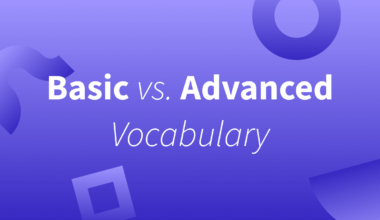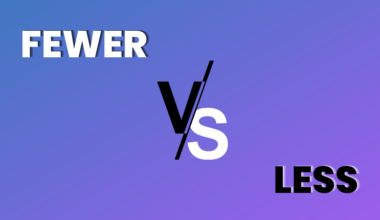Everyone has a soft spot that responds to love, even the hardest of people.
When someone we care about is going through a tough time, our instinct is often to reach out and let them know they’re not alone.
Knowing how to express support can make a world of difference. The phrase “I am here for you” resonates deeply, it provides comfort and reassurance.
However, there are many ways to express this sentiment. In this blog post, we’ll look at synonyms for I am here for you that convey solidarity in everyday conversations.
You’ll learn how to communicate support effectively, regardless of the context or relationship.
Understanding Solidarity
Before we jump into the specific phrases, let’s take a glance at the meaning of solidarity.
Solidarity is the feeling of unity and support among individuals. Supportive language can significantly impact well-being.
Expressing solidarity shows that you stand by someone, especially during challenging times- be it personal struggles, professional setbacks, or emotional distress.
According to a study, people who receive supportive messages often feel less stressed and more connected to others. It is essential in building strong personal and professional relationships.
Synonyms for “I Am Here for You”
Here are ten synonyms for “I am here for you” that you can use in various situations.
1. “I’ve Got Your Back”
“I’ve got your back” is especially effective in casual settings among friends. It signifies that you are ready to offer unwavering support.
The expression is rooted in loyalty and readiness to assist, making it suitable for situations where someone feels anxious or uncertain.
Usage: “If you’re feeling overwhelmed, just remember—I’ve got your back.”

2. “I’m Here for You”
This is a direct variation of the original phrase. It is versatile and can be used in both casual and formal situations.
Its simplicity makes it powerful. It directly communicates your willingness to be present and supportive, regardless of the circumstances.
Usage: “Whenever you need to talk, I’m here for you.”
3. “I’m on Your Side”
You can use this phrase during conflicts or challenges to show solidarity and affirmation. It reassures the other person that you share their perspective and stand with them, fostering a sense of unity.
For example; “No matter what happens, I want you to know I’m on your side.”
4. “You Can Count on Me”
This expression conveys reliability and trust, assuring the person that they can rely on your support. It emphasizes your dependable nature, making it an excellent choice when someone is facing difficulties that require help or guidance.
For example; “If you need assistance with anything, remember you can count on me.”
5. “I’m Here to Support You”
“I’m here to support you” clearly states your intention to assist, making it suitable in workplace scenarios where collaboration is needed. This phrase is ideal for professional settings or when offering specific help.
For example; “In this project, I want you to know I’m here to support you.”

6. “I’m With You All the Way”
It is a verbalization that expresses strong support and commitment, making it ideal for significant challenges or journeys. It focuses attention on your unwavering loyalty and presence, reinforcing the idea that the person is not alone.
Usage: “Through thick and thin, I’m with you all the way.”
7. “I’ll Stand By You”
The phrase assures someone that you will remain loyal and supportive, especially during tough times. You can use this to highlight steadfastness and commitment, making it suitable for emotional or challenging situations.
Usage: “You’re facing a lot right now, but I’ll stand by you.”
8. “You Have My Support”
A more formal way to express solidarity, ideal for workplace scenarios or professional relationships. This phrase conveys a sense of professionalism while still communicating a willingness to help.
How can you use this?
“During the meeting, you have my support if you need it.”
9. “Lean on Me”
This is an informal phrase that suggests emotional support and encourages the other person to rely on you. You can use this to communicate warmth and compassion, inviting the other person to share their burdens with you.
How do you use this?
“If you ever feel down, just lean on me. I’m here for you.”

10. “I’m Here to Help”
A straightforward expression indicating your readiness to assist in any way. Its clarity makes it effective for communicating your availability and willingness to assist in any situation.
For example; “If you ever need anything, just know I’m here to help.”
When and How to Use Supportive Phrases
Different situations call for different levels of support. For instance, a friend dealing with a loss might need a more empathetic tone than someone facing a challenging project at work.
Similarly, language that feels right between close friends might feel too personal in a professional setting.
Contextualizing supportive language according to the situation and the relationship ensures that the message comes across as intended.
Consider the timing, the setting, and the recipient’s emotional state before choosing your words.

Actions That Show Support
Sometimes actions speak louder than words. Small acts, like showing up in person, sending a thoughtful message, or offering specific help such as running an errand or lending a hand with a task, can be more comforting than verbal support alone.
Research indicates that people feel a greater sense of connection when they receive tangible gestures of support. This can reinforce the different expressions of solidarity.
Consider what might be most helpful in a given situation and act accordingly. If your friend needs someone to talk to, prioritize your availability. If they’re overwhelmed, offer to help in practical ways.
By combining actions with supportive language, you create a well-rounded approach to being there for someone.
Conclusion
In conclusion, expressing support is a vital part of creating and maintaining healthy relationships. It promotes understanding and compassion.
By using synonyms for “I am here for you,” you can effectively communicate your solidarity in everyday conversations and present yourself as genuine and attentive.
The next time someone reaches out to you, remember the power of supportive language and the positive impact it can have.
In a world that often feels isolating, your words can make a difference. So go ahead and share the warmth of these expressions of solidarity with those around you.






